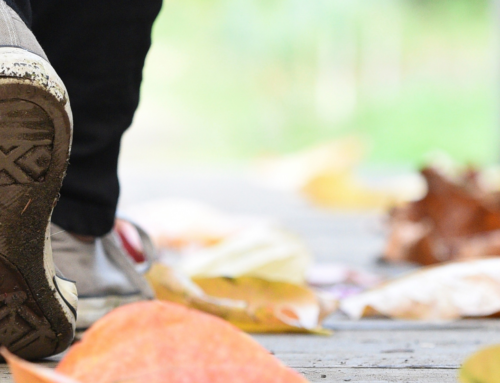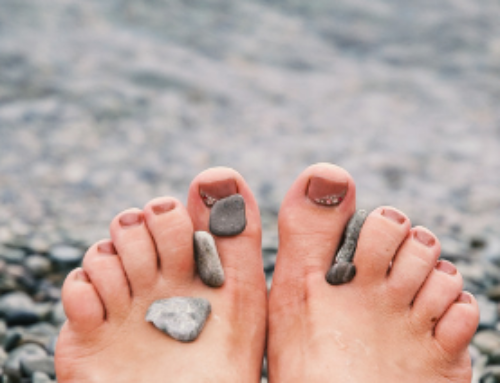More than 50% of women will experience a urinary tract infection in their lifetime. I probably don’t need to tell you how painful a UTI can be, and if you’re in that 20-30% window of women who have recurring UTIs you’re a pro at spotting the symptoms early.
I use a combination of targeted Reflexology sessions and aromatic medicine to support the urinary system through prevention and amelioration. If you’d like to address recurrent urinary infections with your next appointment, let me know!
We want to start with a brainstorming session on the factors contributing to UTIs then look at how we can best support the upper and lower urinary tract. In a Reflexology session I’ll spend extra time on the urinary system reflexes – which can be a bit sensitive if you’re actively experiencing symptoms. We’ll likely work on a couple formulations to address the microbiome of the pelvic floor, to support the urinary system, and any underlying factors such as a frazzled nervous system or gut imbalances.
If you’ve got a history of recurrent UTIs we’ll want to look at preventing them from coming back. Prevention is where lifestyle factors come in to play, and that’s all on your end. You may have heard me quote physiotherapist-reflexologist Nico Pauly before: the practitioner is responsible for 20% of healing, the client is responsible for 80% of healing. So let’s look at some homework for you.
Holistic Checklist for Preventing UTIs
- Urinate after sex
- Manage stress levels
- Address underlying emotions
- Avoid irritating fluids like coffee, alcohol, and sugary drinks
- Wipe front-to-back
- Avoid scented laundry products
- Switch to organic cotton feminine care products
- Understand your constitution’s influence on UTIs
1. Urinate After Sex
Our skin has a unique combination of various microscopic organisms that hang out primarily on the upper layer of skin (epidermis) and along body hair, we call this the skin flora or skin microbiome. I think you might enjoy Ed Young’s I Contain Multitudes for more on the fascinating world of microorganisms as the tiny gardeners of our entire planet. In a nutshell, our skin’s microbiome is a great asset to our health and wellbeing when it is in balance. One of the ways we can lose that balance in the pelvic area is through the introduction of someone else’s microbiome. Any introduction of another person’s skin can influence our skin’s flora, and vice versa. That introduction of new bacteria so close to the urethra is a common way to get a UTI.
Couples who share a bed tend to have a lot of compatibility in their skin flora and may not need to take as many precautions against a potential UTI. Couples who don’t share a bed, have infrequent intercourse, or are a new couple may want to consider the following precautions to prevent a UTI. Either way, you should be urinating after sex, every time, but here’s a couple of additional considerations if you’re a bit more susceptible to a UTI:
- Wash your nether region with Castile soap – I like Kirk’s brand castile soap because it’s made from olives and is much gentler than the more popular “dr” brand on the market.
- Rinse with an antimicrobial hydrosol like Lemon, Oregano, or Tea Tree for an extra layer of gentle prevention.
2. Manage Stress Levels
Have you ever felt emotionally pissed off only to develop physical symptoms of a UTI a bit later? What about feeling so out of control in the face of acute stress that a burning sensation when urinating feels like the very last straw? Yeah, stress can be a trigger for a UTI. Stress management doesn’t serve to make your stress go away – that’s not possible in a world of constant change that we have to adapt to. Stress management seeks to improve how we adapt and respond to stress. Some of my favorites are:
- Make time for daily meditation.
- Have a creative outlet – knitting, baking, writing, painting.
- Quit your always-busy habit.
- Understand how your body responds to stress through the lens of Eastern medicine – your dosha in Ayurveda, your temperament in ancient Greek medicine, your element in traditional Chinese medicine.
3. Address Underlying Emotions

Let go of grudges, jealousy, and suspicion that is no longer serving you or your bladder. In traditional Chinese medicine these are all emotions that can arise when the bladder is out of balance. I’d recommend exploring talk therapy as it can be a great tool for processing emotions in a constructive way that allows us to move forward when we’re feeling particularly stuck with bitter emotions.
Schedule a rant session with your bestie from time to time. Be sure you both know this a meeting to vent built up pressure and co-reflect on ways to improve the situation. This article addresses the research behind the two key formats of venting to friends and may give you some ideas on how to harness this valuable tool without it jeopardizing your relationship with your friend!
4. Avoid Irritating Fluids
Alcohol is a vasodilator and diuretic which can make you more susceptible to a UTI as well as aggravate the symptoms. If you’re on an antibiotic to treat the infection it can also interfere with how the medication is being metabolized in the body which can put you at risk for it being less effective or having stronger side effects. Yuck! Alcohol raises our risk of breast cancer, is the biggest risk factor in early-onset dementia, and has killed more people than the opioid epidemic.
Sugary drinks will increase the level of sugars in your urine which bacteria love to feed on and make you more susceptible to a lower urinary tract infection like cystitis. Sugar is also tied to chronic inflammation, diabetes, heart disease, high blood pressure, and other health challenges.
Caffeinated beverages like coffee and coke irritate the bladder. While not a popular opinion I don’t find caffeine to be a healthful stimulant to the nervous system with chronic use. Daily stimulants can be especially harmful to those experiencing chronic illness and weakness in their constitution in which the caffeine digs them deeper into energy debt. In an age of glorified productivity and “busyness” we miss the opportunity to give the body deep, restorative periods of rest followed by bouts of energy. Want a more productive approach to having energy followed by rest? Let’s talk about syncing up your Ultradian rhythm in your next appointment!
5. Wipe Front-to-Back
Bacteria that exits with fecal material can contaminate the microbiome of the vagina and urethra leaving you with an increased risk of bacterial vaginosis or a urinary infection. Toilet paper should always travel from the front of the body towards the back of the body, see: Here’s Why You Should Always Wipe Front-to-Back.
6. Avoid Scented Laundry Products
Scented laundry detergents can irritate the urethra and pelvic skin leaving it vulnerable to bacterial infections. I recommend unscented laundry products and other household products in general because of the concerns with carcinogenicity, endocrine disruptors, and the general “noise” that is the daily barrage of smells the nervous system has to process.
7. Switch to Organic Cotton Feminine Care Products
Synthetic fibers used in many feminine care products on the market are linked to an increased risk of toxic shock syndrome, bacterial vaginosis, yeast infections, and urinary tract infections. Switching to cotton has been a helpful solution for many of my clients who experienced recurring UTIs and vaginal infections. Look for organic cotton products though as many popular brands use dioxin as a bleaching agent is classified as a carcinogen by the World Health Organization’s International Agency for Research on Cancer. While there are only traces of dioxin in these products keep in mind that dioxin has a cumulative effect and the average woman will use 11,400 tampons in her lifetime.
NatraTouch uses organic Texas cotton in their pads and tampons that are available at HEB and on Amazon. I keep samples in the cabinet drawer in the guest bathroom and you’re welcome to take one at your next visit.
See: A Question for Women’s Health: Chemicals in Feminine Hygiene Products and Personal Lubricants
8. Understand Your Constitution’s Influence on UTIs
The kidneys in traditional Chinese medicine are where we store our deep reserves of energy. It’s always a good idea to do an energy assessment of our day-to-day activities and see if we’re overspending our energy and not reinvesting back into the system. Chronic sleep challenges and overcommitting ourselves in work and family life are a couple of examples of ways we end up being overdrawn on our energy bank account.
Vata constitutions in the Ayurveda tradition are most susceptible to stress and imbalance and we see this through an increase in anxiety, fear, distraction, and inattention. A wellness plan for Vata will seek to balance the elements of air and ether in the body with lifestyle suggestions around structure and keeping routines.
Kapha constitutions under stress tend to reach for sugary foods and drinks and this can work against us when trying to prevent recurrent UTIs. A wellness plan for Kapha will seek to balance water and earth elements in the body with lifestyle suggestions on preventing stagnation in mind, body, and spirit.
Pitta constitutions have a tendency to experience and exhibit stress through heat (burning urination, anyone?). A wellness plan for Pitta will seek to balance the element of fire (and a bit of water) in the body with lifestyle suggestions around work-life-rest balance.
In Conclusion
While I certainly hope this article serves as an overview of ways we both can help reduce your chances of a UTI I would be remiss if I didn’t offer some tips on what to do if you suspect you’ve got one. You want to be evaluated by a medical professional ASAP; I am happy discuss your UTI symptoms but it is not within my skillset or scope of practice to diagnose you with a UTI. An untreated UTI can be hazardous to your entire urinary system and shouldn’t be left to linger. If you’re at all like me you may find it is a challenge to be seen for a quick evaluation, your best bet may be to seek out urgent care. I suggest steering well clear of those free-standing emergency rooms because of their sketchy business model. If you’re in the greater Austin area save yourself the hassle of leaving the office or house and instead schedule a telemedicine consult with a doctor or physician’s assistant over at MyRemedy.com. If you need a urine sample they’ll send a medical assistant out to you, whether you’re resting at home or in between meetings at the office, to collect it. If you’d like, I have a referral link you are welcome to use for $25 towards your first appointment, they’ll give me a $25 credit towards my account to use the next time I need urgent care. As of December 16, 2019, Remedy charges $49 out of pocket for a telemedicine visit and $149 out of pocket for a housecall. Testing, if needed, will vary in cost.









Leave a Reply